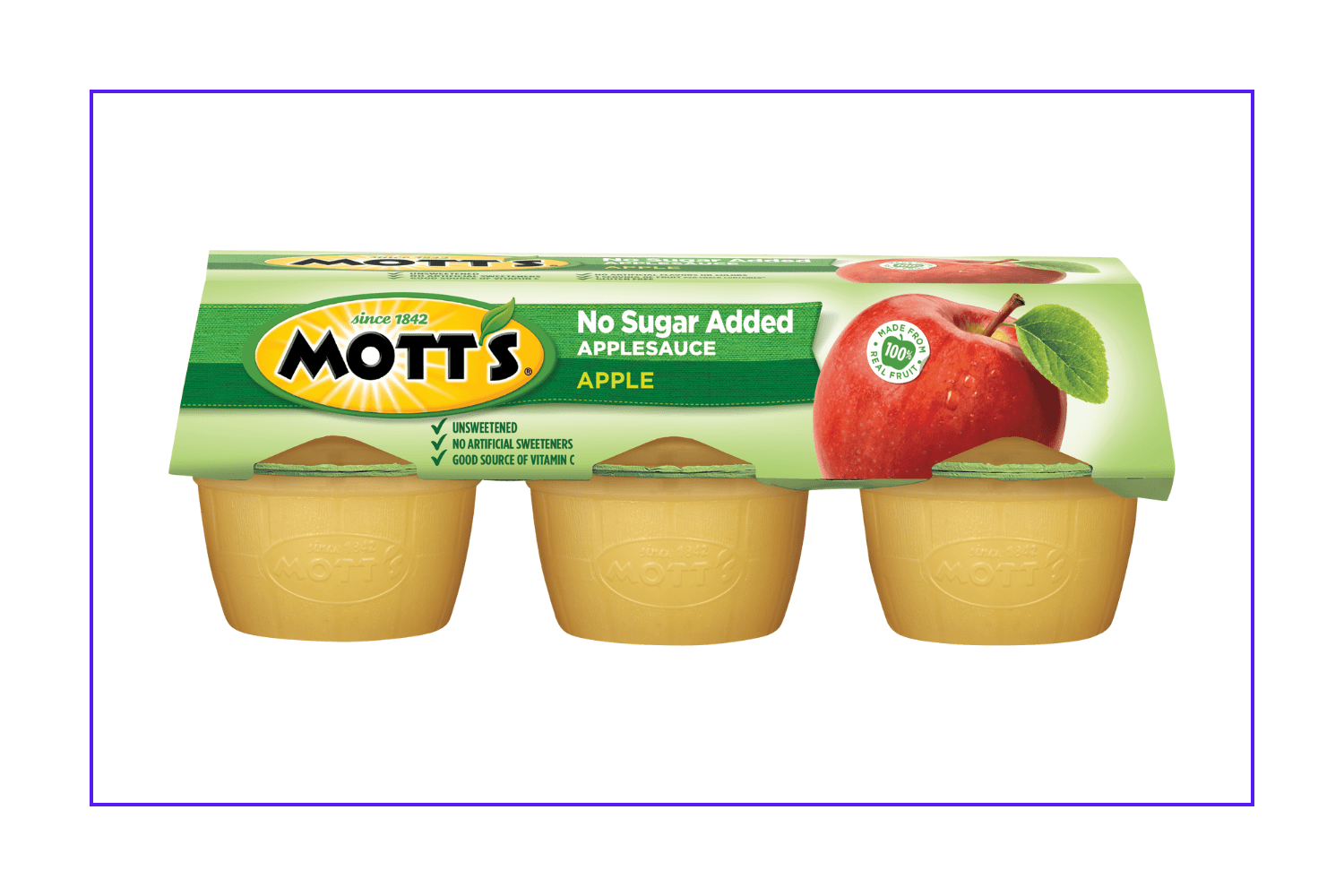Recall Issued for Mott's No Sugar Added Applesauce Due to Higher Patulin Levels

Nearly 9,600 cases of Mott’s applesauce are being voluntarily recalled due to elevated levels of a harmful substance called patulin, according to the Food and Drug Administration (FDA).
The recall was initiated on May 18 and is ongoing; it affects the 3.9-ounce cups of Mott's No Sugar Added applesauce, sold in packs of six.
The products may be contaminated with elevated levels of patulin, which is a toxic compound that is naturally produced by molds or fungi. Ingesting patulin in general has been linked to vomiting and gastrointestinal issues, though no injuries or illnesses from the recalled applesauce have been reported.
It’s not clear when exactly the products were sold, but they were distributed for retail in 24 U.S. states including: Alabama, Connecticut, Florida, Georgia, Iowa, Illinois, Indiana, Kentucky, Massachusetts, Maryland, Maine, Michigan, Minnesota, Missouri, North Carolina, New Jersey, New York, Ohio, Pennsylvania, South Carolina, Tennessee, Texas, Virginia, and Wisconsin, as well as in Bermuda and the Dominican Republic.
The specific recalled products can be identified by a code printed on the packaging, as well as the “best by” date. Consumers should discard any Mott’s No Sugar Added applesauce with the following codes and 'best by' dates:
- Mott's No Sugar Added applesauce products with different 'best by' dates and codes are not included in the recall and are safe to consume.
“On testing of a sample from this production run, a natural contaminant in apple-based products was detected at levels slightly above FDA limits,” a company spokesperson told Health. “Mott’s is committed to the highest standards of quality and has completed the necessary actions to remove the impacted product from the marketplace.”
The FDA has not yet classified the recall, which would provide more information about how likely the recalled product is to cause serious harm.
Patulin is one of five mycotoxins sometimes found in human food that the FDA focuses on. It can be produced by three different types of mold—Penicillium, Aspergillus and Byssochylamys—which can grow on things such as grain, fruit, or cheese.
In particular, apples and apple products are prone to being contaminated with Penicillin expansum, a fungus that can release patulin.
Ingesting higher amounts of patulin has been associated with vomiting, nausea, and other gastrointestinal problems. Patulin is also considered genotoxic, which means that it can damage the genetic material in cells, possibly causing cancer. However, according to the World Health Organization, there’s currently no demonstrated evidence that the toxin is a carcinogen.
Because of these risks, the FDA has set certain limits for how much patulin can be in apple juice products.
It’s not clear how the elevated levels of patulin made it into the Mott’s No Sugar Added applesauce. But food processing companies can lower the risk of their products being contaminated with the mycotoxin with proper handling, storage, and transportation practices.
Unfortunately, there’s not much that the individual consumer can do about mycotoxins in food since the molds that cause patulin and other mycotoxins usually grow during crop production or storage.
Customers with questions regarding their Mott's applesauce products can contact the Mott's Consumer Relations line by calling (800) 426-4891, Monday through Friday from 9 a.m. to 6 p.m., EST. The company also has a product feedback form on its website.




